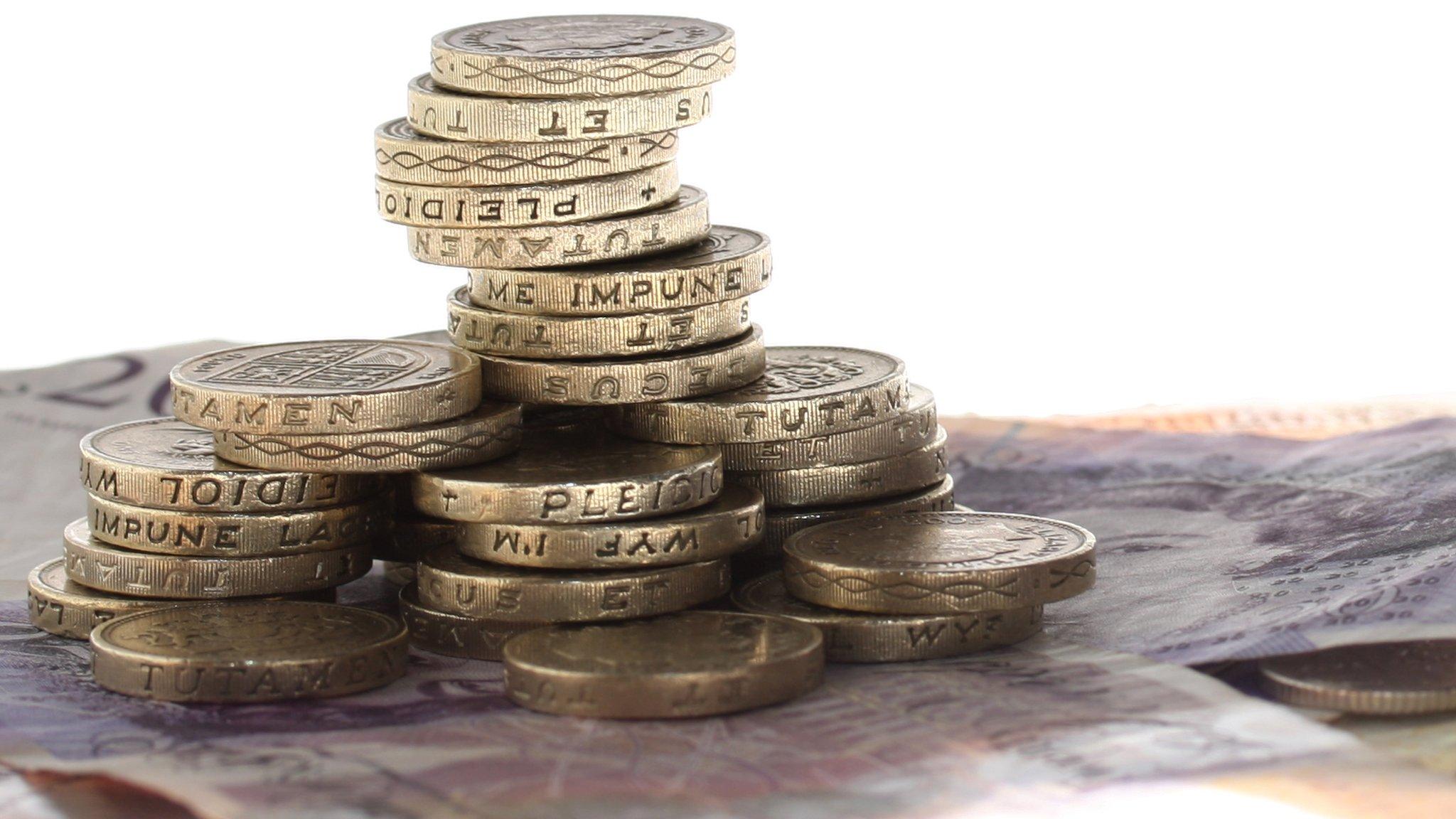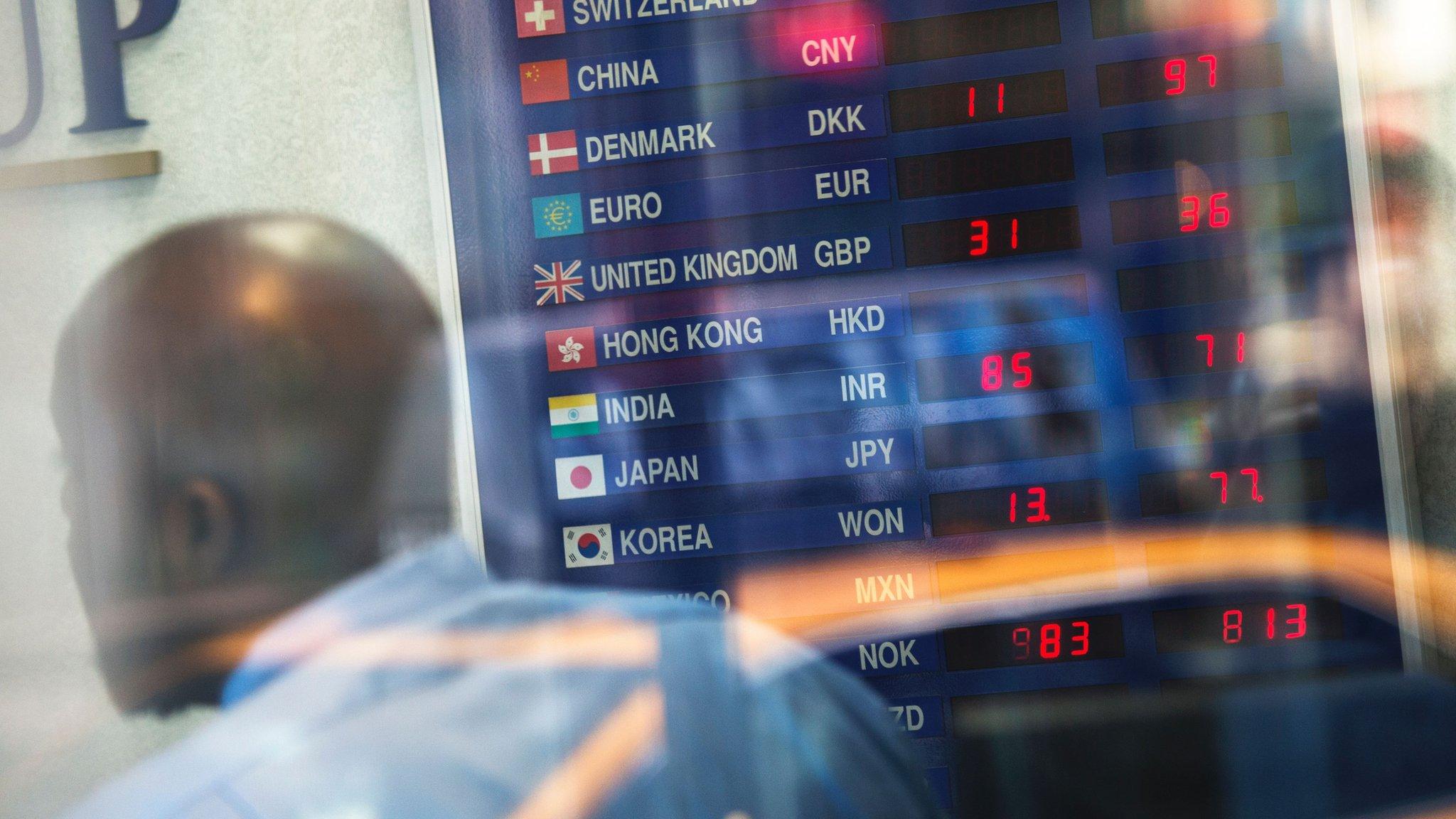FTSE 100 soars as pound slides
- Published

The FTSE 100 share index came close to an all-time high after rising above 7,000 points as the pound plunged to a new 31-year low against the dollar.
London's leading share index closed up 1.3% at 7,074.34 - just short of its record high of 7,103.98.
However, the pound fell to $1.2737 at one point - its lowest level against the US dollar since 1985.
Sterling has fallen for the past two days as traders study the Conservative Party conference for Brexit details.
Simon Jack: Why rising shares aren't a sign of joy
Business Live: FTSE up, pound down
Against the euro, the pound was down 0.7% at €1.13840.
The FTSE 250 share index, which features more UK-focused companies, closed at a record high, surging 0.9% to 18,342.07.
Stock markets in Frankfurt and Paris also closed higher on Tuesday.
Overseas profits
The FTSE 100 has benefitted from the fall in the pound since the Leave vote because the many international companies whose shares are traded in the UK tend to benefit from it.
Profits earned abroad by multinationals such as drugs giant GlaxoSmithKline and major mining companies are worth more when converted into sterling.
That makes a company's shares appear better value when compared with the higher profits it will make, prompting a revaluation of the stock.
The FTSE 250 index, however, has lagged behind the FTSE 100 since the Brexit vote because gains from the weaker pound for the outward-looking businesses have been offset by fears about the fortunes of UK-focused companies.
The FTSE 250 contains a higher percentage of UK-facing businesses than the 100. Since June though, a string of better-than-expected economic news has also helped to lift their share prices.
On Tuesday, a closely watched survey suggested that the UK's construction sector had unexpectedly returned to growth in September.
The latest Purchasing Managers' Index for the construction sector rose to 52.3 from 49.2 in August. Any figure above 50 indicates expansion.
"Resilient housing market conditions and a renewed upturn in civil engineering activity helped to drive an overall improvement in construction output volumes for the first time since the EU referendum," said Tim Moore, senior economist at IHS Markit, which compiles the survey.

Sterling 'wounds'
On Sunday, Prime Minister Theresa May said she would trigger Article 50 by the end of March 2017.
Analysts say the pound has been hit by the prospect of the UK leaving the EU single market as part of the Brexit process.
Esther Reichelt, currency strategist at Commerzbank, said the government's apparent insistence on limiting freedom of movement was causing particular uncertainty among investors.
"This increases fears of a 'hard' Brexit because so far nobody sees a possibility of achieving this without May having to accept notable restrictions when it comes to accessing the single market," she said.
Connor Campbell, analyst at traders Spreadex, said: "It seems that it is going to be hard to provide a tourniquet for sterling's recent wounds given the solidity of the newly announced Brexit timeline."
Kathleen Brooks, research director at Forex.com and City Index, said the Tory party conference was turning into a sell for the pound given Mrs May's "apparent sanguine attitude to leaving the single market, preferring to focus on immigration and UK sovereignty rather than the economic fallout of Brexit".
She said comments by the Chancellor, Philip Hammond, in which he warned that the UK economy was heading for a "rollercoaster" ride over the coming years, had not helped.
- Published4 October 2016
- Published4 October 2016

- Published3 October 2016
- Published29 June 2016

- Published6 July 2016
